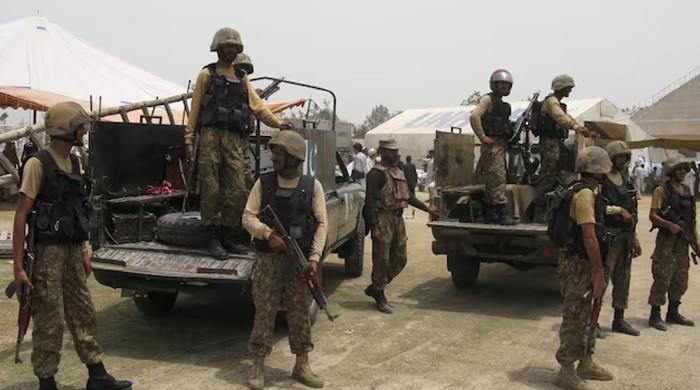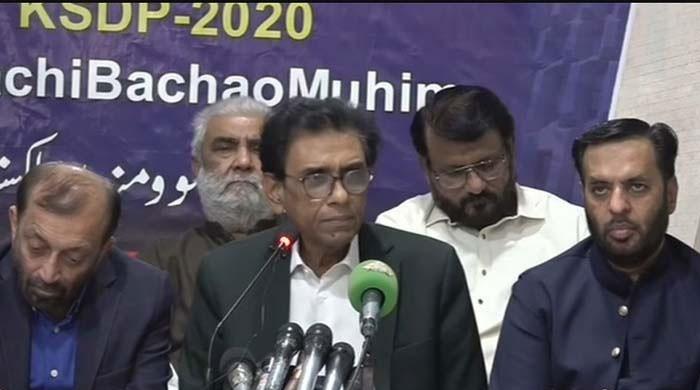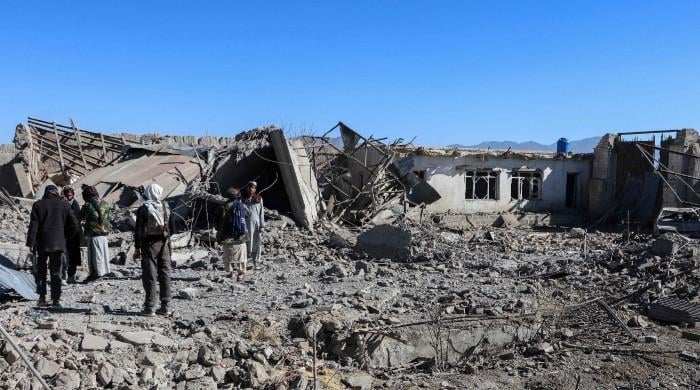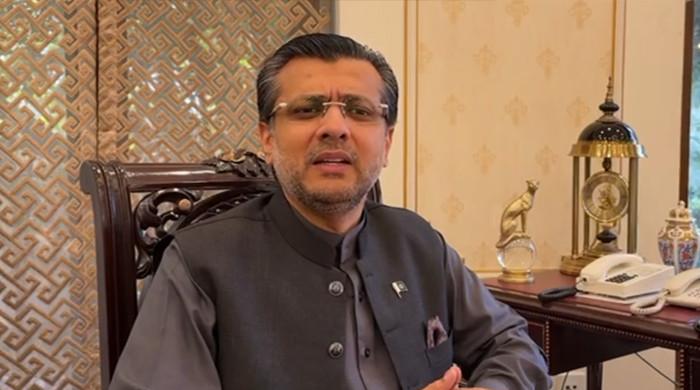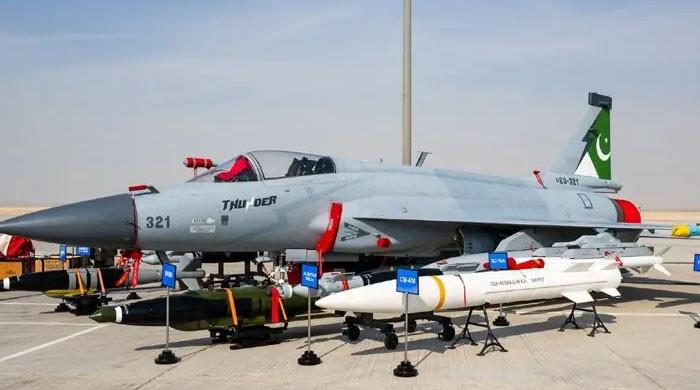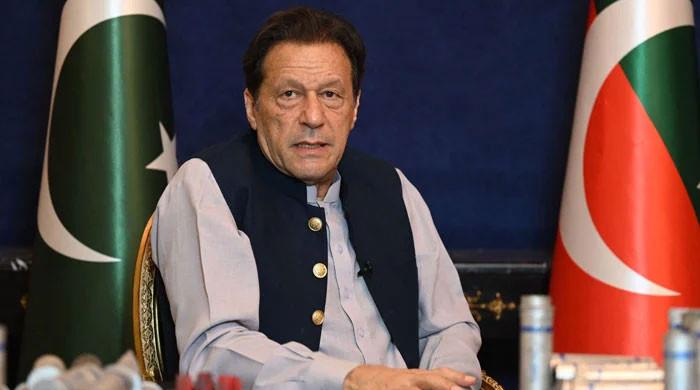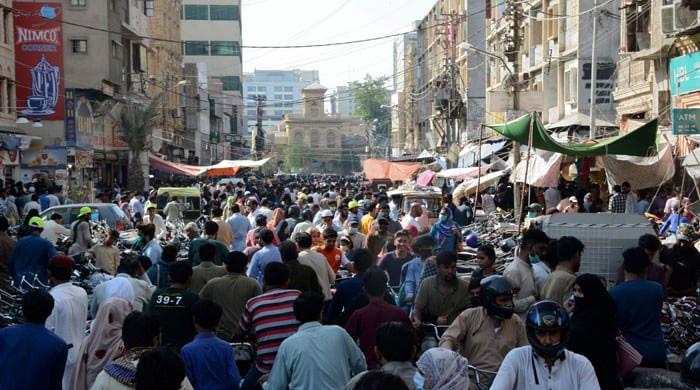Punjab local govt bill empowers DCs, sidelines elected officials
Bill is currently under review in a standing committee, where it has come under fire not just from opposition lawmakers but also from members of the ruling party
May 22, 2025
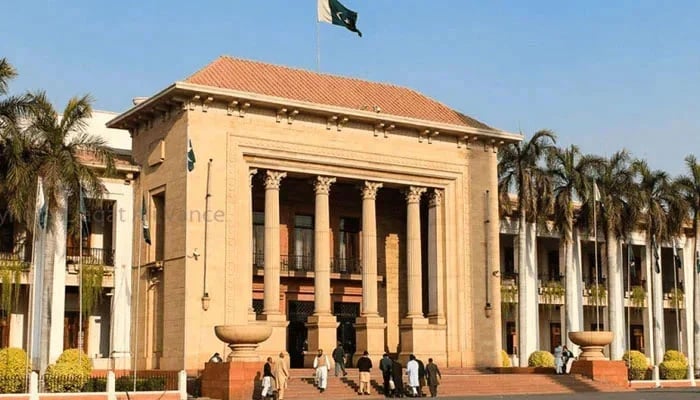
LAHORE: A new local government bill in Punjab grants sweeping authority to unelected deputy commissioners (DCs), sidelining elected officials and raising alarms about democratic backsliding in Pakistan’s most populous province.
Tabled by the ruling Pakistan Muslim League-Nawaz (PML-N) on March 7 in the Punjab Assembly, the bill is currently under review in a standing committee, where it has come under fire not just from opposition lawmakers but also from members of the ruling party.
Legal experts argue the bill undermines Article 140A of Pakistan’s constitution, which mandates the devolution of power to elected local bodies. Others fear the legislation is aimed at preventing the rise of powerful mayors from rival political parties.
What’s in the bill?
The proposed law introduces a two-tier structure for local governments with a five-year term: one at the tehsil (sub-district) level and another at the Union Council level.
In major cities like Lahore (population over 700,000), the upper tier would be called a Town Corporation. Cities with populations between 200,000 and 700,000 would have Municipal Corporations, while smaller towns (25,000 to 200,000 people) would be governed by Municipal Committees.
In rural areas, the top tier would be called the Tehsil Council.
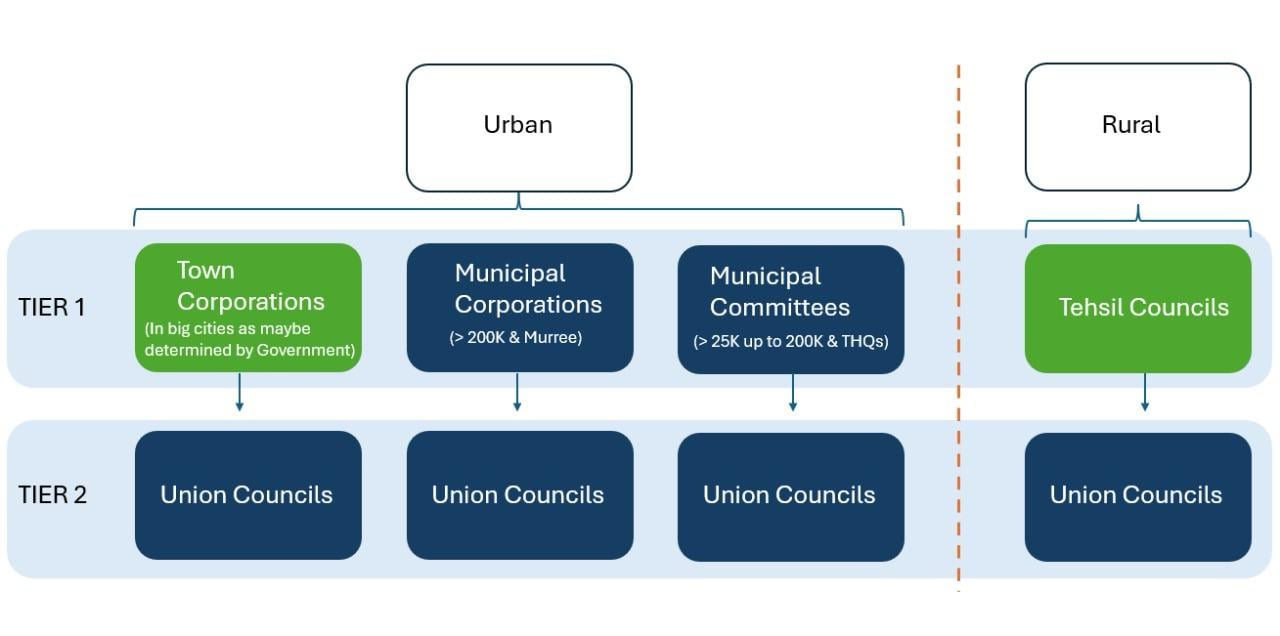
The second tier would be known as Union Councils, the most basic units of governance in both urban and rural areas.
Voters would be allowed to directly elect only Union Council members. Each council would have 13 members -- nine general and four reserved seats (for women, youth, peasants, and non-Muslims).
These members would then elect mayors and deputy mayors of the upper tiers through an indirect vote.
Role of deputy commissioner
Since the system starts at the tehsil level, it leaves the deputy commissioners, a colonial-era bureaucratic position, in complete control at the district level with no elected counterpart to check his/her powers.
In fact, under the bill, DCs would wield considerable power. They would facilitate the election commission in drawing constituency boundaries.
And head a newly created District Authority, which will be responsible for managing, operating and allocating funds for the 10 departments devolved to local governments, namely: health, education, social welfare, population control, sports, transportation, civil defence, public health engineering, art and culture and tourism.
The DCs would also chair the District Municipal Coordination Forum, a body that could recommend legal or disciplinary action against local government officials.
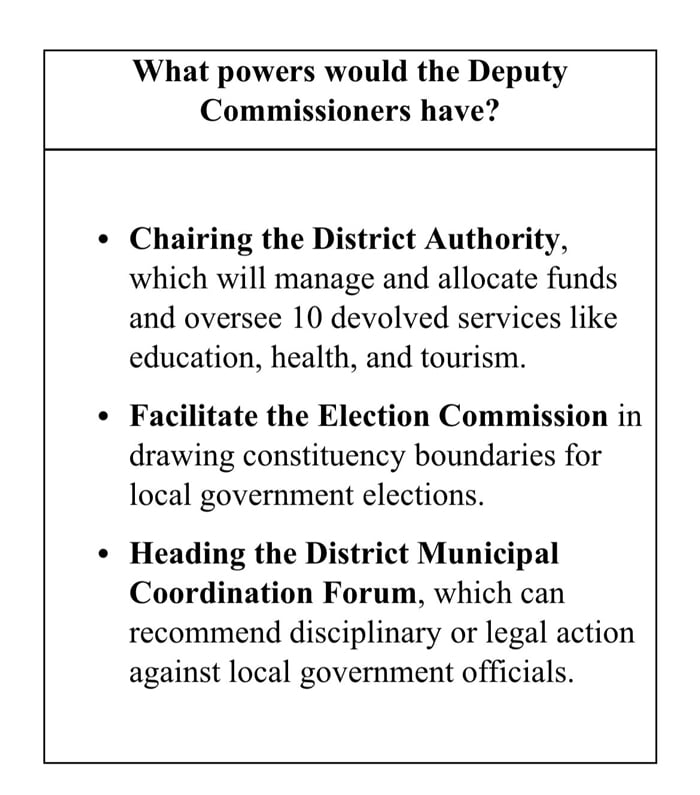
While local governments would technically control services like water, sanitation, roads and graveyards, amongst other things, the bill includes a major caveat: any existing provincial agency delivering those services would retain those powers unless the provincial government decides otherwise.
During an April 10 standing committee session, government officials admitted that devolving powers was “optional” and subject to the discretion of the Punjab government.
What does govt say in its defence?
Zeeshan Rafique, the minister for local government in Punjab, dismissed concerns that the proposed local government system would place elected representatives under the authority of the deputy commissioner.
“This is a misconception,” Rafique said in an interview with The News at a recent event in Lahore. “The [new] local governments will be completely independent and autonomous bodies. They will have their own budgets. The DC will only sit at the district level as a representative of the Punjab government.”
Rafique argued that the provincial government deserves credit for devolving authority beyond the district level. “The Punjab government should be appreciated for devolving power from the districts down to the lowest level, such as the sub-district (tehsil) and union council”, he said.
Still, the minister acknowledged that key questions remain unresolved, particularly around whether certain departments, such as health, should be devolved at all. “Yes, there are departments like health, education etc, where there is a debate about how much they can be devolved”, he admitted.
“But I can guarantee you”, he added, “that after this [new law is passed], it will create the strongest local government and service delivery will also improve.”
The last time local government in Punjab completed their term in 2021. Since then no new local governments elections have been held in the province.
What do critics say?
In the April 10 standing committee meeting, the PML-N’s own lawmaker Ahmed Iqbal Chaudhry criticised his party’s bill, calling it a violation of Article 140A. He pointed out that provincial governments have already stripped local bodies of their core responsibilities, handing them to provincial authorities.
He cited the Punjab Mass Transit Authority, which oversees public transportation, the Saaf Pani Authority, which regulates water supply, the Shehr e Khamoshan Authority, which manages graveyards, and more recently, the Punjab Spatial Planning Authority, tasked with preparing land use plans, as some examples of provincial bodies already encroaching into the domain of local governments.
Chaudhry pointed to the words added in the law that provincial authorities will continue to perform local government functions. “What we are doing is wrong. We are taking away powers from the local government and parking them in [provincial] authorities”, he told the committee.
Experts say another controversial provision in the bill is that each voter can cast only one vote for a general member at the Union Council level. They say this effectively limits each party to fielding just one candidate, making it harder for any party to secure a majority and increasing the likelihood of fractured, multi-party councils.
“This system pushes political parties out of local elections”, said Mubeen Uddin Qazi, a lawyer and local government expert. “If a voter can cast only one vote, how can a party campaign for multiple candidates? It violates the purpose of party-based elections.”
Mayraj Fahim, a local governance advisor and fellow at The City Mayors Foundation, said the bill was not a genuine attempt to devolve power.
“It [the bill] is a mess”, she told The News. “There’s no research backing it. Punjab needs a strong system to match its population and rapid urbanisation. But instead this system is weak. It is undermined by fragmentation and overlapping of functions.”
A Lahore-based academic, who requested anonymity, said the bill appeared designed to block the rise of strong mayors seen as potential political threats.
“There seems to be fear [within the PML-N] that this system could produce powerful mayors from rival parties”, he said. “Since strong mayors often become leadership contenders and increase competition in the democratic space.”
Originally published in The News





